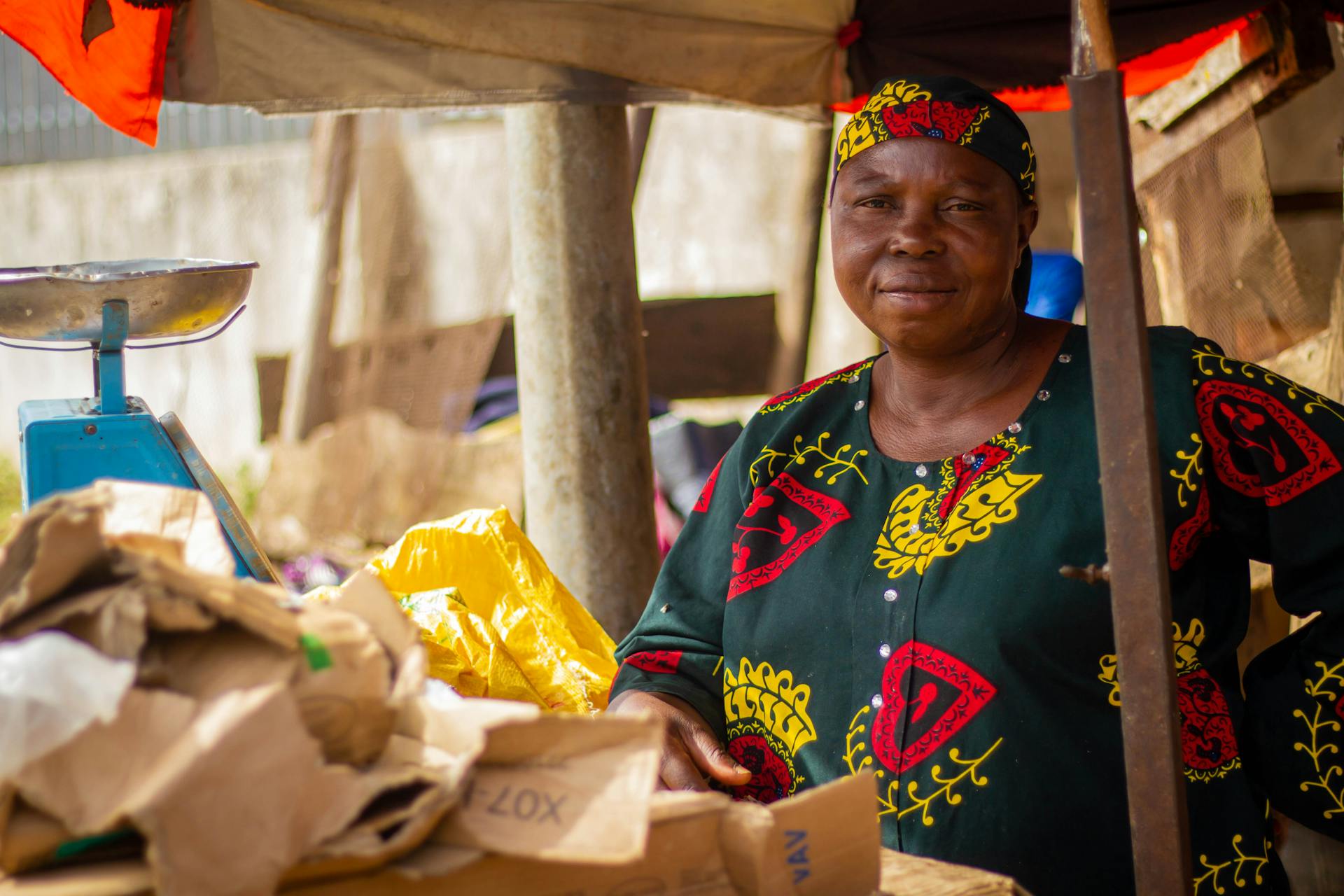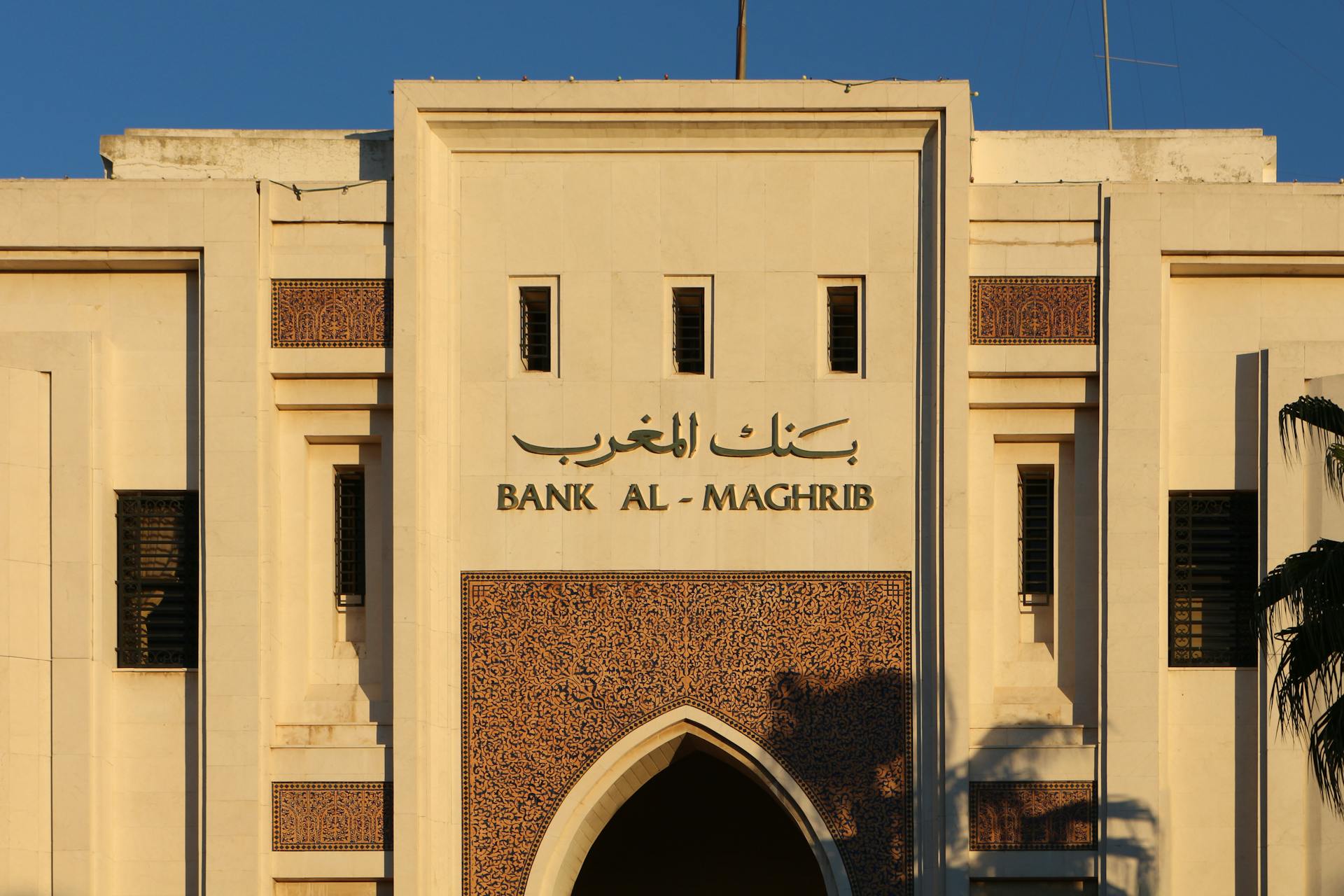
African equity markets are a rapidly growing and diverse investment opportunity. The total market capitalization of the 20 major African stock exchanges is over $1 trillion.
The largest African equity market is South Africa, with a market capitalization of over $1 trillion. This is more than the combined market capitalization of the next three largest markets.
Investing in African equity markets can provide access to high-growth companies in industries such as technology and healthcare. The African continent is home to a growing and young population, creating a large and expanding consumer market.
The Johannesburg Stock Exchange (JSE) is one of the oldest and most established stock exchanges in Africa, with a history dating back to 1887.
Readers also liked: What Is Market Capital in Stock Market
Understanding the Market
The African stock market landscape is diverse and dynamic, comprising 29 exchanges in 27 countries. Some markets are well-established and relatively liquid, like the Johannesburg Stock Exchange (JSE), while others are smaller and less developed. Investing in African stocks requires an understanding of this landscape, including the key exchanges, their characteristics, and their performance.
Africa's economic indicators suggest a positive outlook for many markets, with six of the world's ten fastest-growing economies located on the continent. Key sectors driving this growth include technology, consumer goods, and infrastructure. These sectors offer attractive investment opportunities, but it's essential to note that economic growth doesn't always translate into stock market performance.
Investing in African stocks requires careful analysis and risk management, as African markets can be volatile and affected by global commodity prices, currency fluctuations, and geopolitical events.
You might enjoy: Turkish Economic Crisis (2018–current)
Stock Market Landscape
The African stock market landscape is diverse and dynamic, comprising 29 exchanges in 27 countries. These markets vary in size, liquidity, and sophistication.
Some of the key exchanges include the Johannesburg Stock Exchange (JSE), the largest and most developed in Africa, with a market capitalization of over $1 trillion. The Nigerian Stock Exchange (NSE) is another key player, the largest in West Africa, with a market capitalization of around $70 billion.
The African stock market landscape is not just about size, however. The Nairobi Securities Exchange (NSE) is the leading exchange in East Africa, known for its innovative products, such as mobile-based bonds.
For more insights, see: Indian Equity Market Size
Understanding Regulatory Environments
Understanding the regulatory environment of the African country you're investing in is crucial. Different countries have different regulations that can impact your investment.
Some countries may have restrictions on foreign ownership of stocks, so it's essential to research these regulations before investing.
Understanding these regulations can help you navigate the investment process more effectively, giving you a competitive edge in the market.
Beware of malicious persons offering to sell delegate lists from events or assist with conference-related services, as companies like Africa Events Limited do not sell their data to third parties.
Using local brokers can provide valuable insights and advice, but it may involve higher fees and commissions, and a significant minimum investment is often required.
A fresh viewpoint: Bhp Billiton Stock Quote
Stock Investing
Investing in African stocks requires careful planning and execution. It's essential to decide which markets and sectors to invest in based on thorough research and analysis.
African markets are emerging, offering potential for high returns for early investors. However, these markets can also be volatile, leading to significant gains or losses.
See what others are reading: H B L Power Share Price
To invest in African stocks, you'll need to choose the right investment vehicle, such as individual stocks, mutual funds, or exchange-traded funds (ETFs). Opening a trading account and managing your portfolio are also crucial steps.
Political and economic instability in some African countries poses a risk to investors. It's crucial to consider these factors when investing in African stocks.
The potential rewards of investing in African stocks make them an attractive investment opportunity. With the right approach and due diligence, investing in these markets can be a rewarding venture.
A different take: Capital Project Funds
Risks and Rewards
Investing in African stocks comes with its unique set of risks and rewards. Understanding these is key to making informed investment decisions.
One of the rewards is the potential for high returns, as African markets are emerging and early investors can reap significant benefits. African markets can be volatile, leading to substantial gains, but also significant losses.
Political and economic instability in some African countries can pose significant risks. Despite these risks, the potential rewards make African stocks an attractive investment opportunity.
Curious to learn more? Check out: Forex vs Stocks
Risks and Rewards of Investing
Investing in African markets comes with its unique set of risks and rewards. Understanding these is key to making informed investment decisions.
One of the rewards is the potential for high returns, which can be substantial due to the emerging nature of African markets.
Investors can reap significant benefits by getting in early, but it's essential to be aware of the risks involved.
Political and economic instability in some African countries can pose significant risks to investors.
It's crucial to consider these factors when investing in African markets.
African markets can be volatile, which can lead to substantial gains but also significant losses.
This volatility can be a double-edged sword, offering potential for high returns but also potential for substantial losses.
Despite these risks, the potential rewards make African stocks an attractive investment opportunity.
Investors should be aware of the unique dynamics of these markets and understand the risks involved before making a decision.
Here's an interesting read: Equity Market Making
Currency Risk and Liquidity
Currency fluctuations in African countries can impact your returns, making it essential to understand the risks involved.
Investing in African stocks can be affected by the local currency's value against your home currency, which can lead to unexpected losses.
Some African stock markets may lack liquidity, making it difficult to buy or sell stocks when you want to.
Understanding currency risk can help you navigate the African stock market more effectively.
Explore further: Artificial Intelligence Stock Broker
Frequently Asked Questions
What are the top financial markets in Africa?
The top financial markets in Africa include the Johannesburg Stock Exchange (JSE), Nigerian Stock Exchange (NGX), Egyptian Exchange (EGX), Kenya Securities Exchange (NSE), and Casablanca Stock Exchange (CSE), which are major hubs for trading and investment on the continent. These exchanges play a crucial role in Africa's economic growth and development.
What are capital markets in Africa?
African capital markets are underdeveloped, with limited listed and tradeable securities, making it difficult for investors to access a wide range of financial instruments. This fragmentation and lack of depth hinder the growth of the overall financial sector.
Sources
- https://en.wikipedia.org/wiki/List_of_African_stock_exchanges
- https://www.zawya.com/en/economy/africa/african-stock-markets-push-for-removal-of-firm-dominance-risk-in-equity-trade-wd78dtcq
- https://mf-journal.com/article/view/70
- https://www.afsic.net/investing-in-african-stock-markets/
- https://tesahcapital.com/2021/01/performance-of-selected-african-stock-markets-in-2020/
Featured Images: pexels.com


